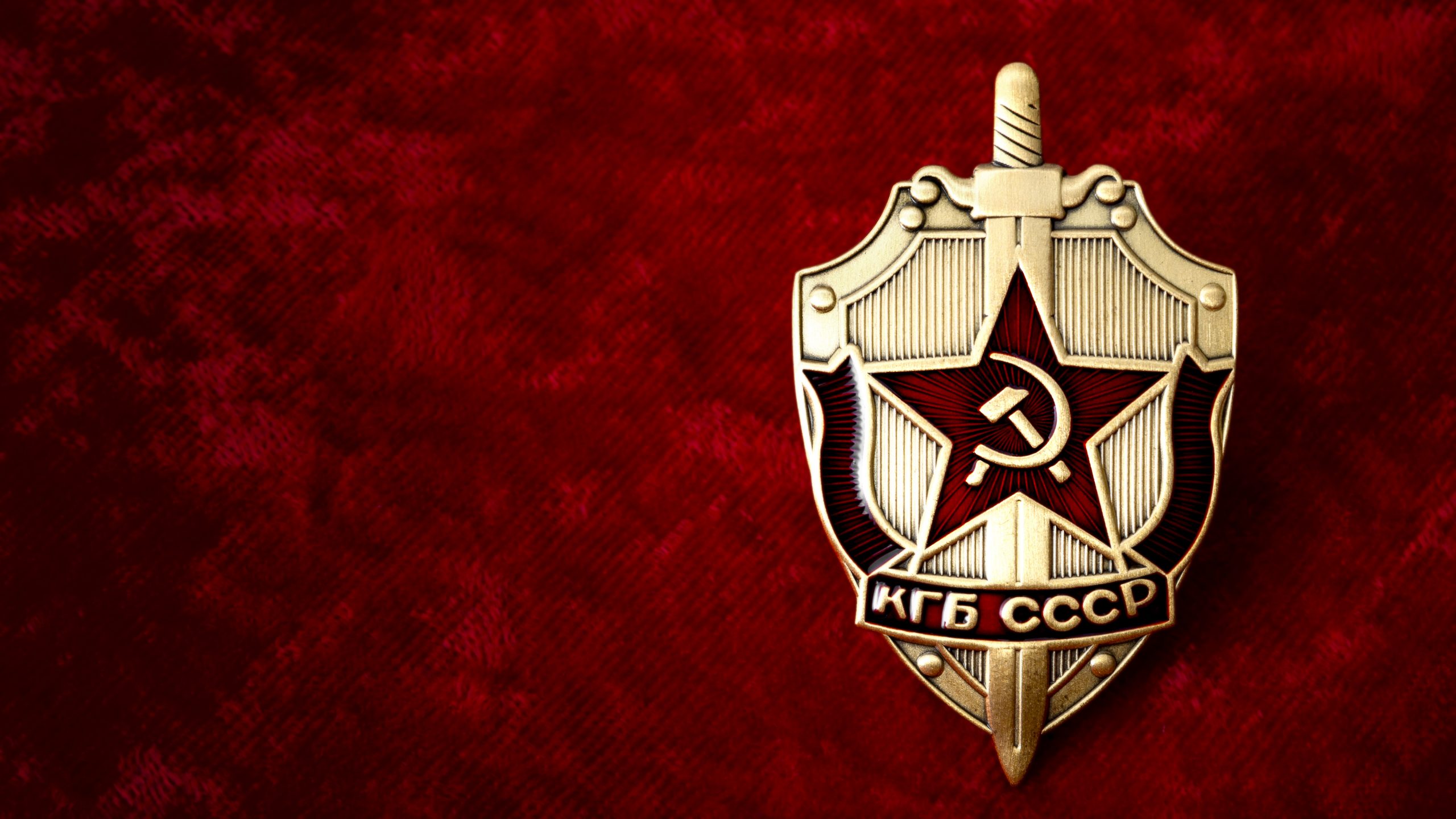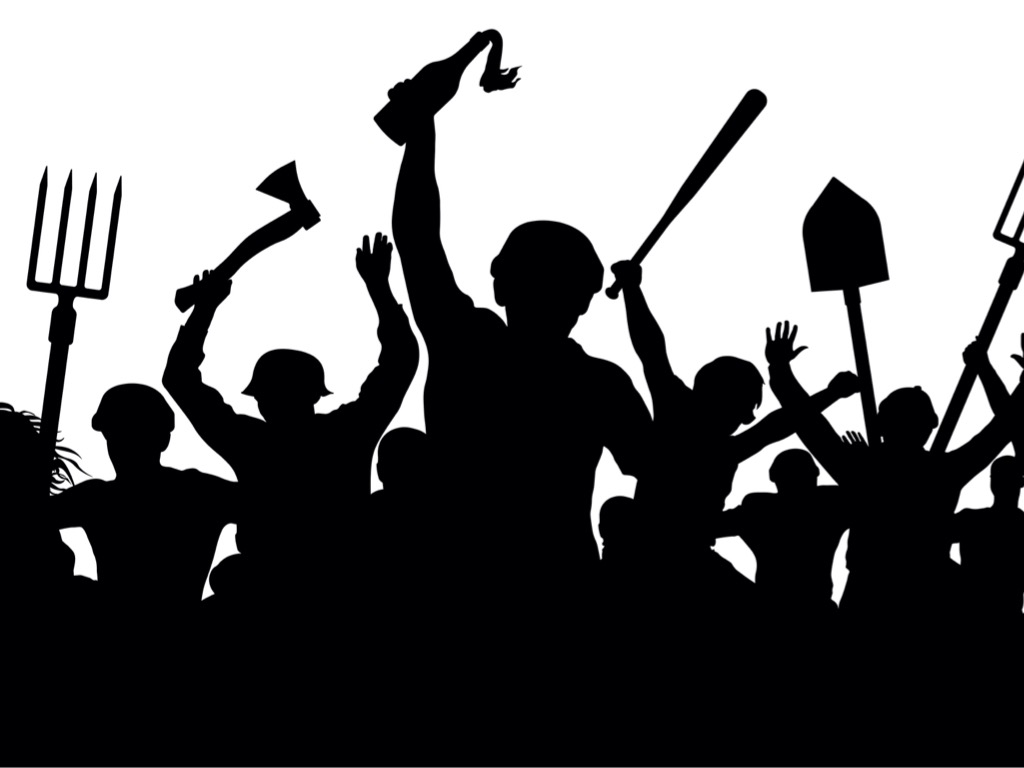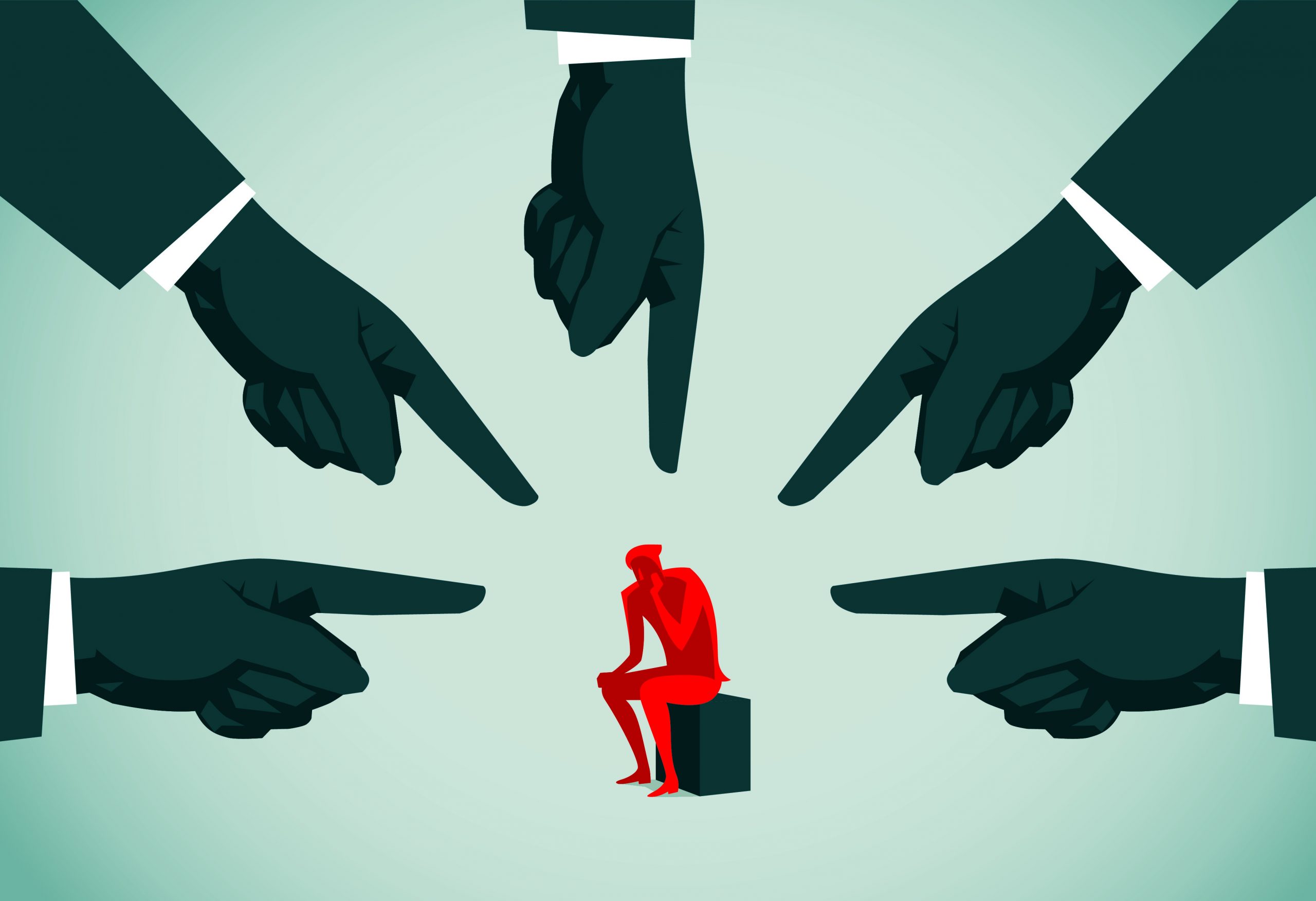The woke know exactly how to break their victims down.
A Letter to the Cancelled

Some things can’t be taken away.
On the day my ostracism began, the #MeToo movement was at a fever pitch. The poetry world—a stagnant substratum of the larger literary community—didn’t have its own scandal yet, and the pressure was building.
Scurrilous allegations against me were posted on a website, and a link was disseminated on Facebook and Twitter by an ex-lover on January 10, 2018. An online mob gathered within hours. They harassed my publishers, demanding that they stop selling my books. They harassed a soon-to-be publisher, demanding they drop my book and break our contract. They sent letters and emails to a university I worked for part-time, demanding they fire me. They contacted friends of mine, demanding they publicly denounce me. If these demands weren’t met, the threat was implicit: you, your press, the institution you represent, would be found guilty by association.
There was no relatable precedent for what rapidly unfolded in my life. I didn’t know what to do, and neither did anyone else. I apologized several times, groveling to the mob—I thought if I was transparent they would leave me alone. The mobbing intensified as they used my words against me.
More online mobbings occurred, and anonymous letters full of lies, and even a few articles in now-defunct magazines, also full of lies, appeared over the course of that year and well into 2019. I lost most of my friends, and a panic disorder, which I thought I had beaten through years of meditation, came roaring back.
I’ve already written at length about my mistakes, the accusations, and their aftermath. I won’t rehash the details here. This essay is for those who are experiencing, or have experienced, cancellation; and I’m also writing to myself with the advice I wish I had been given then.
The Aftermath
Your phone’s blowing up. You know something’s wrong. Your throat tightens as you read one text message after another asking if you’re OK. A few of the texts are angry and confused (“What the f*ck? Is this who you are? I don’t understand”).
You want to respond to everyone immediately, assuring them that what’s being said about you isn’t true. There’s more to the story, but context is obliterated by the heat of mob rage. Still, you exhaust yourself with explanations.
You take a few calls from concerned friends. You hear the fear in their voice, the grief. Their attempts to comfort you only pique your anxiety. “You know I care about you,” they say. “But please keep this conversation private.”
No one will stand up for you. They’re well aware what the consequences will be if they defend you on social media, which is where your life is being systematically distorted and destroyed by a faceless mob. They don’t want to lose their careers, their social group, their reputation, everything they’ve worked for. You’re in freefall and they’re watching from the windows, waving.
The life you know is now the life you knew. Time feels like it’s slipping and disintegrating beneath and around you. The present instantly falls into the past, and the future—what future?
What do you do now? Writhe in agony? Turn the phone off and sleep through the days? Plan your suicide? I did all of those things. But they were a waste of energy. Over time I realized that the antidote to this particular kind of shock—the sudden, violent expulsion from society, and the subsequent shunning—is to practice vigilant mindfulness.
Fight the Demons
The anxiety of not knowing what happens next will rattle you to your core. You’ll think you’re going to implode, but this is an opportunity to tether yourself to your breath, and to place your feet on the ground.
Turn your phone off. Go for a walk. Get away from the screens. While you’re walking, remember to breathe—breathe deeply, from the base of your stomach to the top of your chest. Hold the breath after you inhale, and release it slowly. As long as you’re breathing, you’re still alive. As long as you’re breathing, you’re not alone.
Take time to research deep-breathing techniques. If you’re proactive about self-care, it will distract you from drifting into dark streams of thought. Find what works for you. Panic and anxiety can be quelled by deep breathing—it works more efficiently than any drug, prescribed or otherwise.
If you tend to drink to excess, resist doing so during this time. You don’t want to enable a loss of emotional control, opening the door to self-sabotaging behaviors like googling yourself and responding to the trolls on social media, or contacting that friend who ghosted you to tell them they’re a coward. Don’t hesitate to attend an AA meeting if you find it difficult to avoid getting drunk. You’ll find kind people there who are well-acquainted with making mistakes and being written off as pariahs. Remind yourself again and again that you are not alone. Go for walks. Feel companionship with everything and everyone you pass.
I know this drives against the grain of the fear and anger boiling within you, but you have to find a way of re-channeling those emotions. Don’t let the mob drive you to annihilate yourself. If the sun is out, turn your face toward it. If it’s raining, let it fall down the back of your neck. Feel yourself present in every given moment. The sense of loss is overwhelming, but now cannot be lost.
If you continue with this practice, grace will find you. And by grace, I mean a wave of gratitude and awe that arrives seemingly out of nowhere and leaves you washed-through with unspeakable joy. Your nervous system can only handle so much stress before it surrenders. Facilitate the surrender, and give in to grace.
You will find it in the most ordinary ways: the breath, a walk, a healthy meal. Keep a journal and make lists of what you notice as you walk or sit, and see how all things pass.
If you’re an artist or a writer, don’t stop creating. Stay connected to that part of you that is rooted in the good, the essential, the impulse to articulate that which surrounds you and the turbulence within.
Use the chaos to your advantage, to tune yourself into the stillness at the center of who you are. That stillness is always accessible. Breathe and be still and know that you are well. Tell yourself you are well, even if you don’t believe it. You want to sandbag your brain against the waves of hate pouring in from social media and the heartbreak of lost friendships and a damaged career. Refuse to absorb the message that you are less than human.
Posthumous Existence
While on his deathbed, overcome with tuberculosis, the poet John Keats wrote in his final letter: “I have an habitual feeling of my real life having past, and that I am leading a posthumous existence.” During the early days of my cancellation, I thought about that line quite a bit—I felt like a ghost as I attempted to navigate a life that seemed to no longer exist—but I wasn’t dead, nor was I dying.
You aren’t dead or dying, either.
Unlike Keats, we have the ability to get out of bed and, with full lung capacity, breathe deeply. You may find yourself facing depression and anxiety like you’ve never felt before. You will be pushed beyond your psychological limits, and your physical limits—they are entwined. But you will survive if you resist confronting toxicity with toxicity.
Anger will warp the foundation of your well-being. Don’t feed it. If you have lawyers, let them do the fighting. If you have a close friend, let him or her care for you. If dark thoughts take over and you aren’t safe, head directly to the nearest emergency room. There is no shame in seeking and accepting help from others.
Don’t abandon who you were before the cancellation. That person remains but now must adapt to entirely new terrain—it will take time to adjust, and to see yourself clearly again. Regard yourself with patience and forgiveness.
If I stopped writing poetry, it would have suffocated an ability to see the world around me as expansive, fully alive, an occasion for ecstatic speech that transcends the degraded language we wade through every day—the language of advertising, politics, and online character assassination. The mob took many things from me, but they couldn’t take that.
The Roman poet Ovid, after he was exiled in 8 AD for pissing off Emperor Augustus, wrote: “they’ve stripped me of all they could take, / yet my talent remains my joy, my constant companion.” Companionship in joy that is invulnerable to any individual or mob, or worldly condition, is one sure way to save yourself from falling for the traps small minds have set before you. Set your mind on preserving the parts of you they can’t take away.
And don’t forget to breathe.
The American Mind presents a range of perspectives. Views are writers’ own and do not necessarily represent those of The Claremont Institute.
The American Mind is a publication of the Claremont Institute, a non-profit 501(c)(3) organization, dedicated to restoring the principles of the American Founding to their rightful, preeminent authority in our national life. Interested in supporting our work? Gifts to the Claremont Institute are tax-deductible.
Wherever, however, don’t back down.
Fear not those who can destroy the body.
A guide for the hexed.
Republicans should defend ordinary Americans, not affluent literati.
Everything we do can be recorded. What now?






